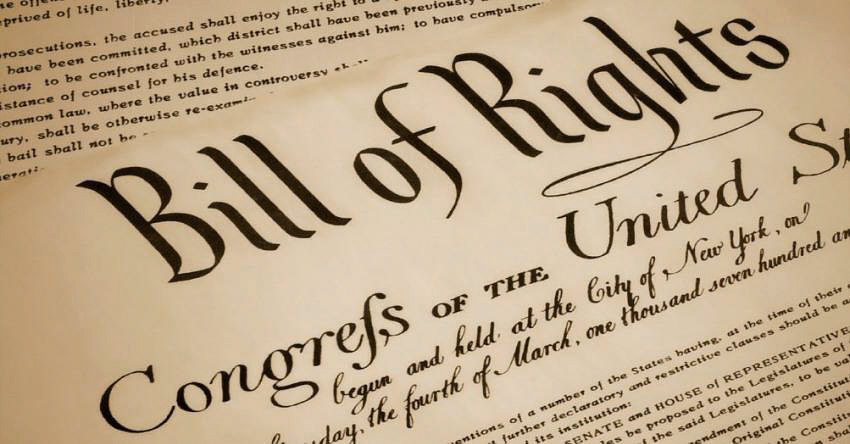

No, Professor, Rights
Are Not For Shredding

By Charles C. W. Cooke. March 10, 2022
Article Source
There is only one thing worse than listening to an American citizen propose that we cut up the U.S. Bill of Rights, and that is listening to an American citizen propose that we cut up the U.S. Bill of Rights while pretending they are doing no such thing.
In The Boston Globe last December, Professor Mary Anne Franks did precisely this. As part of a symposium on the U.S. Constitution, Franks argued that Americans should seek to “edit” the “deeply flawed” First and Second Amendments so that they are less “aggressively individualistic.” The first two provisions within the U.S. Bill of Rights, she concluded, “are highly susceptible to being read in isolation from the Constitution as a whole and from its commitments to equality and the collective good.” And so, they must go.
There is, of course, a reason that the First and Second Amendments tend to be “interpreted in aggressively individualistic ways,” and that reason is that the First and Second Amendments are aggressively individualistic rights—that is their purpose, their point, their function. A First or Second Amendment that was not “aggressively individualistic” would be of no use whatsoever. It would be a dead letter—not worth the paper it was written on.
Franks’ piece is filled to the brim with euphemisms that all mean the same thing in practice. She suggests that, instead of interpreting the First Amendment as we do currently, we should “resolve” any conflicts that arise “in accordance with the principle of equality and dignity of all persons.” This means that the First Amendment should have no teeth. She suggests that we should “provide stronger and fairer protections for the right of expression.” This means that the First Amendment should have no teeth. She suggests that the First Amendment should be “subject to responsibility for abuses.” This means—yes, you’ve guessed it!—that the First Amendment should have no teeth. As it currently exists, the First Amendment serves as the most-robust protector of speech and conscience rights that the world has ever seen. Franks wishes to change that—and not for the better.
Her prescription for the Second Amendment is even more extreme. Instead of guaranteeing the right to keep and bear arms, she wants Americans to alter the Constitution so that it protects “a meaningful right to bodily autonomy and obligates the government to implement reasonable measures to protect public health and safety.” This is another way of saying that we should abolish the right to keep and bear arms and trust fully in the efficacy of the government.
Astonishingly enough, or perhaps not astonishingly at all given her treatment of the First Amendment, her edited Second Amendment wouldn’t protect the private ownership of guns at all. Having described the Second Amendment’s “focus on arms” as an “idiosyncratic and anachronistic” mistake that “degrades the concept of self-defense,” she removes any reference to firearms. Americans, she argues, should enjoy “the right to defend themselves against unlawful force ... .” It’s unclear how that right would work in practice in Professor Franks’ America, where law-abiding Americans would have no right to the most-effective means of self-defense.
To clear up exactly how that “defend themselves” bit would, or really wouldn’t, work, Franks insists, “the government ... shall take reasonable measures to protect the health and safety of the public as a whole.”
So, disarmament.
Ultimately, Franks is assuming that you are too stupid to see what she is doing. Summing up her proposal, she contends that Americans should abandon their traditional constitutional setup and “situate individual rights within the framework of ‘domestic tranquility’ and the ‘general welfare.’” This is a fancy way of saying that the natural rights Americans currently enjoy wouldn’t actually be legal rights anymore.
Next time, Franks could just say that—and spare us all the merry dance
![]()

























